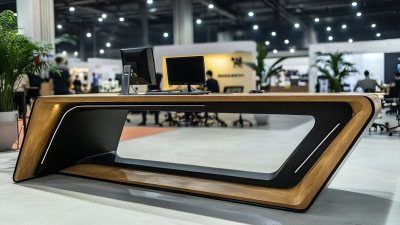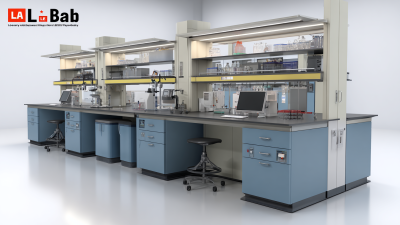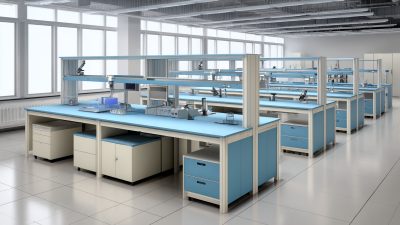As research environments evolve to meet the demands of modern scientific inquiry, the design of laboratory spaces plays a crucial role in enhancing productivity and innovation. A recent report from the National Institutes of Health reveals that an organized and well-equipped laboratory can boost experiment efficiency by up to 30%. Central to this efficiency is the laboratory desk, which serves as the hub for various scientific activities. In fact, according to a survey conducted by Lab Manager, over 65% of researchers consider the functionality and ergonomics of their laboratory desk to be critical for their workflow. With increasing emphasis on collaborative work and technological integration, modern laboratory desk designs are now focusing on flexibility, modularity, and smart technology features. This blog will explore the seven best laboratory desk designs that not only meet the functional needs of researchers but also contribute to a conducive research environment.
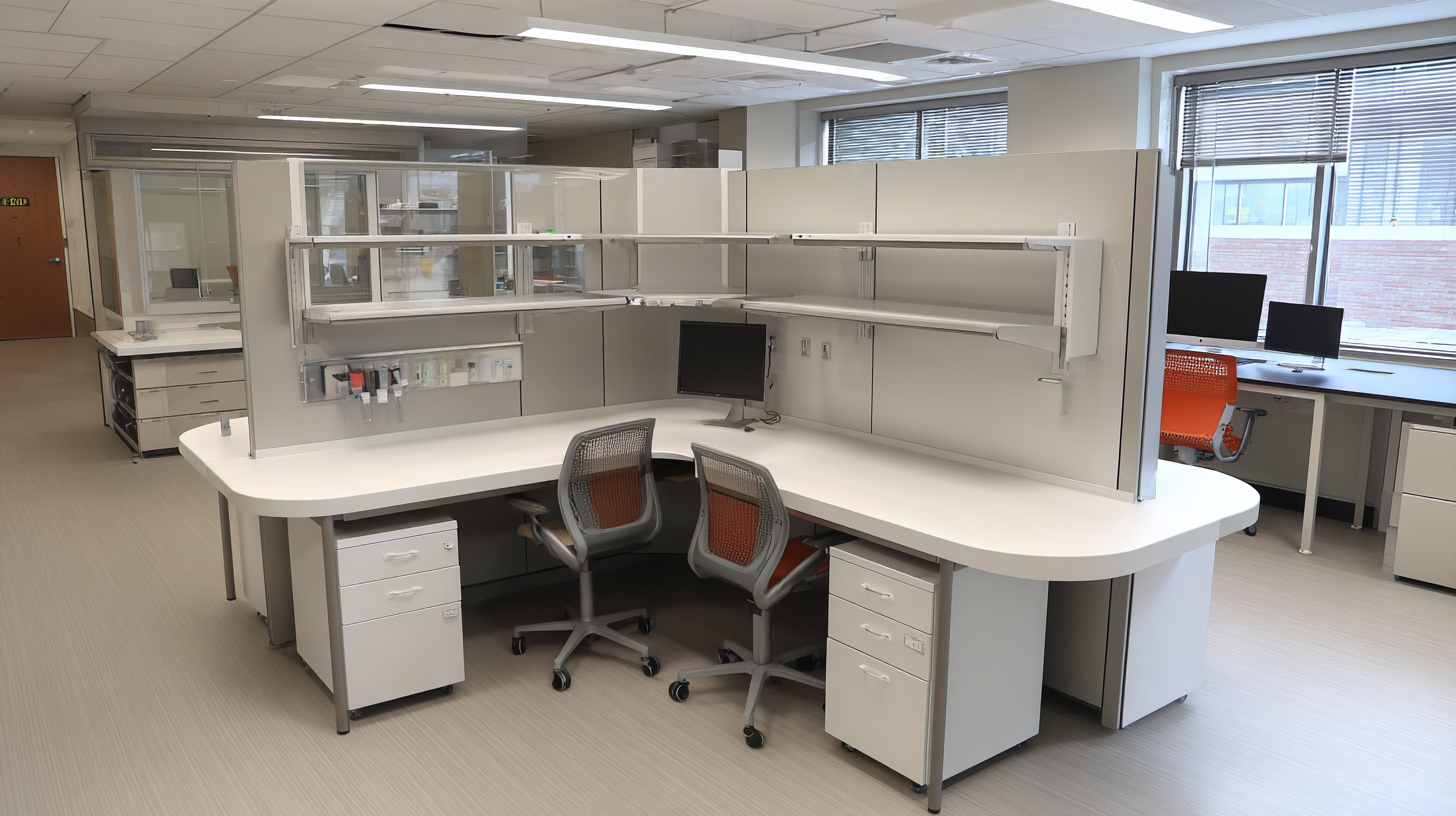
Modern laboratory desk designs have evolved significantly, showcasing innovative features that enhance functionality and support a dynamic research environment. One of the most prominent attributes of contemporary desks is their adaptability. Many designs offer modular components that can be easily reconfigured, allowing researchers to customize their workspace to suit specific projects or collaborative efforts. This flexibility not only maximizes the use of laboratory space but also fosters creative problem-solving among team members.
In addition to adaptability, modern laboratory desks often incorporate advanced technology to streamline workflows. Integrated power sources, USB charging ports, and built-in cable management systems help maintain a clean and organized workspace, minimizing distractions during critical research tasks. Furthermore, ergonomic considerations are paramount, with adjustable heights and thoughtfully designed surfaces that promote comfort and efficiency. These features collectively contribute to a more productive atmosphere, encouraging researchers to focus on their work while seamlessly integrating with the latest technological advancements in their field.
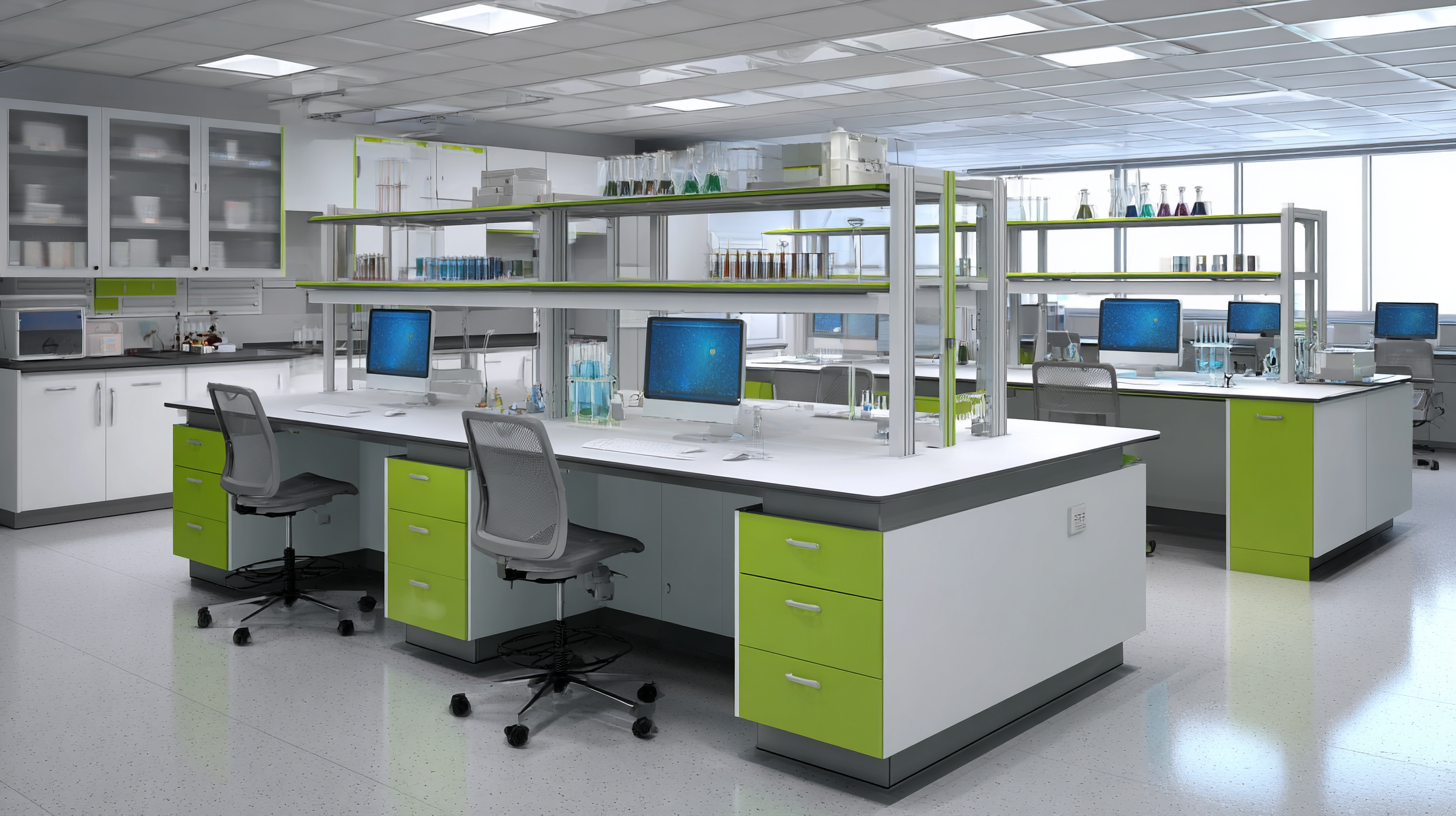
In modern research environments, ergonomic considerations play a crucial role in enhancing productivity. A well-designed laboratory desk that promotes comfortable posture and easy access to tools can significantly impact researchers' efficiency and well-being. When selecting a laboratory desk, it’s important to consider the height and adjustability. A desk that accommodates both sitting and standing positions allows researchers to switch between postures throughout the day, reducing the risk of fatigue and repetitive strain injuries.
Tip: Incorporate sit-stand desks into your lab design to encourage movement throughout the day. This not only helps maintain physical health but also boosts focus and creativity, essential for effective research.
Another key factor is the layout of the workspace. A clutter-free, organized desk can prevent distractions and enhance workflow. Equip the desk with adequate storage solutions for instruments and materials, so essential items are within arm's reach. Ergonomically designed chairs that support the back and foster a natural sitting position should also be considered as they further contribute to a comfortable working environment.
Tip: Utilize drawer systems and vertical storage solutions to keep the workspace tidy and functional. Implementing a clear organizational system can greatly improve efficiency and help maintain an optimal research pace.
| Desk Design | Material | Height Adjustment | Weight Capacity | Special Features |
|---|---|---|---|---|
| Sit-Stand Desk | Bamboo | Electric | 350 lbs | Integrated cable management |
| Geratory Desk | Metal | Manual | 400 lbs | Foldable shelves |
| L-Shaped Desk | Wood | Fixed | 300 lbs | Compact design |
| Mobile Lab Desk | Aluminum | Height adjustable | 250 lbs | Lockable wheels |
| Corner Desk | MDF | Fixed | 290 lbs | Ergonomic layout |
| Height-Adjustable Lab Table | Epoxy resin | Electric | 500 lbs | Chemical resistant |
| Adjustable Research Desk | Steel | Manual | 350 lbs | Modular design |
In modern research environments, selecting the right materials for laboratory desk surfaces is paramount. Durability and resistance to wear are essential attributes, especially given the increasing complexity of experiments and the use of diverse substances. Recent studies highlight the importance of material properties: for instance, the evaluation of bond durability in bioactive restorative systems emphasizes how effective adhesion can significantly impact the longevity and performance of laboratory components.
Research also illustrates the potential of innovative materials in enhancing durability across disciplines. The development of rubber fiber hydraulic concrete showcases robust mechanical properties, while explorations into anti-icing gels reveal solutions for environments facing extreme cold. On another front, the study of UV-durable self-cleaning coatings points towards advancements that not only improve functionality but also maintain aesthetic integrity in laboratory settings. Such explorations are vital for ensuring that laboratory desks meet the rigorous demands of modern scientific research.
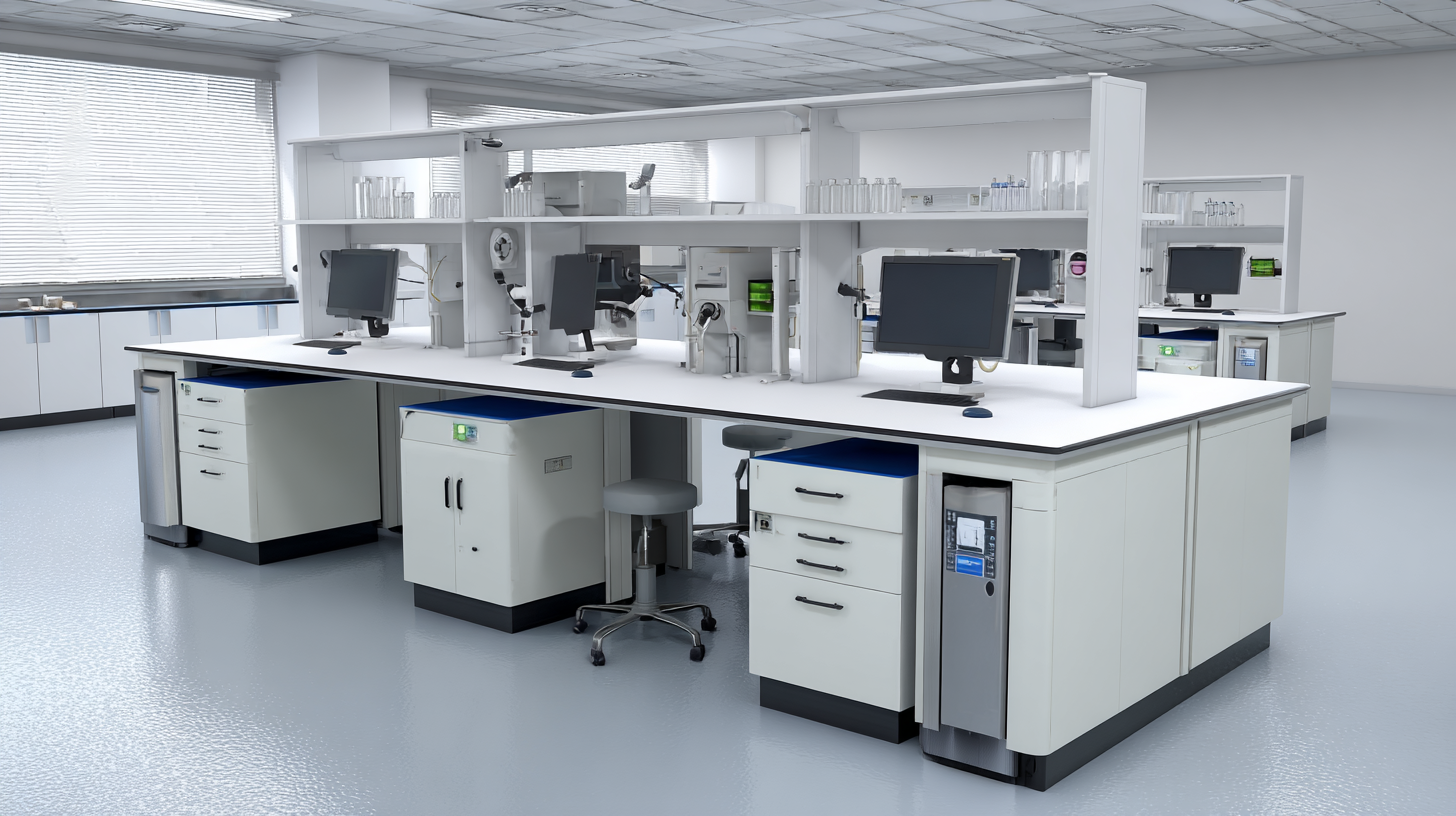
In the rapidly evolving landscape of modern research environments, having a functional and adaptable workspace is crucial.
Customizable desks are at the forefront of this transformation,
allowing researchers to tailor their workstations to meet specific needs. With a variety of modular components,
researchers can easily adjust their desks for experiments, data analysis, or collaborative projects.
This flexibility not only maximizes productivity but also enhances comfort, enabling scientists to maintain focus during long hours in the lab.
Furthermore, these customizable solutions can cater to the diverse requirements of different research fields. For instance, a biology lab may benefit from desks equipped with integrated sinks and storage for samples, while a chemistry lab might prioritize chemical resistance and easy-to-clean surfaces. By utilizing adjustable height settings, researchers can also alternate between standing and sitting, promoting better posture and overall well-being.
Investing in customizable desk designs is not just about aesthetics; it’s about creating an optimal work environment that fosters innovation and collaboration in research.
In today’s research environments, laboratory desks are evolving to incorporate advanced technologies that enhance functionality and efficiency. These modern designs are being informed by innovative projects such as the Smart Laboratory on Clean Rivers (SLCR) initiative in Varanasi, which leverages artificial intelligence and Internet of Things (IoT) technology to improve data management and operational effectiveness. A report by the International Labmate indicates that integrating such smart features can reduce laboratory downtime by up to 30%, significantly increasing productivity.
Moreover, recent developments in educational labs, like the Petrographic Microscopy Laboratory, highlight the importance of technology in facilitating hands-on learning experiences. By allowing students to engage with cutting-edge tools, these environments not only make complex study topics like mineral analysis more accessible but also prepare students for high-tech research settings in their future careers. The incorporation of customizable configurations and smart features in lab desks supports varying teaching methods and collaborative work, fostering an inclusive atmosphere that nurtures innovation and discovery.
This chart shows the distribution of smart features incorporated in various laboratory desk designs, highlighting how technology enhances functionality and efficiency in modern research environments.


